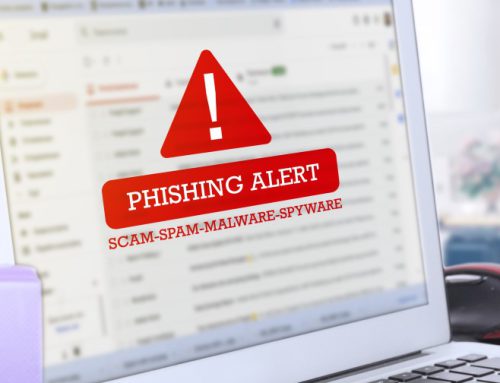Valentine’s Day is a time for love, romance, and thoughtful gestures. Unfortunately, it’s also a prime opportunity for cybercriminals to take advantage of unsuspecting individuals. The increase in online shopping, dating, and gift-giving during this season makes it an attractive target for hackers and scammers. In this post, we’ll explore the darker side of Valentine’s Day, uncovering how cybercriminals exploit the holiday and how you can protect yourself from falling victim to their schemes.
1. Phishing for Love: Fake Emails and Messages
Phishing attacks spike around Valentine’s Day as scammers send out fraudulent emails or text messages posing as popular retailers, flower delivery services, or even romantic interests. These emails often promise great deals on Valentine’s Day gifts or claim you’ve received a special message from a secret admirer. Once you click the link or download an attachment, malware can be installed on your device, or you may be directed to a fake website that steals your personal information.
How to protect yourself:
- Be cautious of unsolicited emails, especially those with enticing offers or romantic subject lines.
- Hover over links to check the URL before clicking, ensuring it’s from a legitimate source.
- Avoid downloading attachments or entering personal information unless you’re sure the email is authentic.
2. Fake Online Stores and Gift Offers
With so many people purchasing gifts online for their loved ones, cybercriminals set up fake e-commerce websites offering deals that are too good to be true. These fraudulent stores lure people in with low prices on popular Valentine’s Day gifts, like jewelry, chocolates, or flowers, but they’re designed to either steal your payment information or never deliver the items.
How to protect yourself:
- Stick to well-known, trusted retailers when shopping online.
- Check for secure websites (look for “https” and a padlock icon in the URL).
- Read reviews of unfamiliar sites before making a purchase and avoid deals that seem suspiciously cheap.
3. Romance Scams: Preying on the Lonely
Romance scams surge around Valentine’s Day, especially on dating apps and social media platforms. Scammers create fake profiles and lure in victims by pretending to be interested in a relationship. Once they’ve gained the victim’s trust, they fabricate an emergency and ask for money, gifts, or sensitive information. This type of emotional manipulation can leave victims heartbroken—and broke.
How to protect yourself:
- Be skeptical of anyone who asks for money or personal information, especially if you’ve never met them in person.
- Avoid rushing into a relationship online, and be wary of individuals who quickly profess love or push for private conversations.
- Report suspicious profiles on dating apps or social media.
4. Fake eCards and Malware
Many people enjoy sending or receiving Valentine’s Day eCards as a fun way to express affection. However, scammers also take advantage of this by sending fake eCards loaded with malware. These eCards may appear to come from a friend, partner, or secret admirer, but when you click the link, your device becomes infected with malicious software that can steal your personal data or lock you out of your device.
How to protect yourself:
- Avoid opening eCards from unknown senders or those with generic subject lines like “You’ve got a Valentine’s Day surprise!”
- Check the sender’s email address carefully. If it looks suspicious or unfamiliar, don’t open the eCard.
- Use antivirus software to detect and block potential malware attacks.
5. Social Media Scams
On Valentine’s Day, many people love to share their romantic plans, gifts, and special moments on social media. Scammers can use these public posts to gather personal information for identity theft or target individuals with custom-made phishing attacks. Moreover, some scammers create fake social media contests or promotions for free Valentine’s Day gifts, requiring you to enter personal information or share the post to participate.
How to protect yourself:
- Be mindful of how much personal information you share online, especially in public posts.
- Avoid participating in social media contests that ask for sensitive information or seem too good to be true.
- Enable privacy settings on your social media accounts to limit who can see your posts and personal details.











